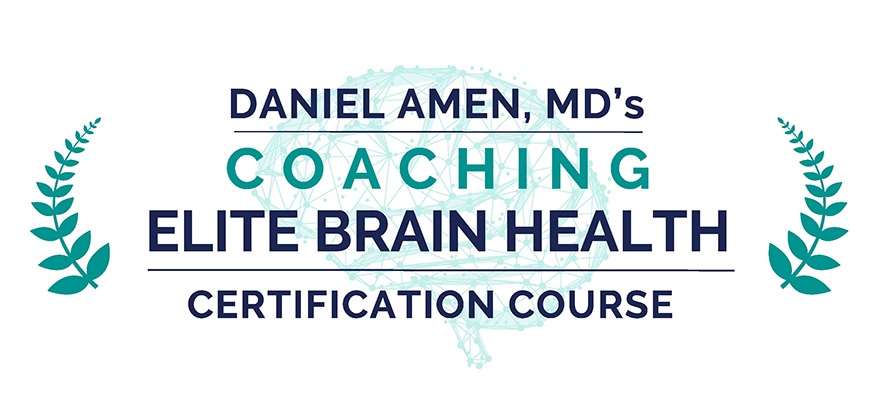
Brain health is no longer a niche topic tucked away in medical journals. Coaches, trainers, and wellness professionals are recognizing that if you ignore the brain, you limit every other change you are trying to help a client make. That realization has created a growing interest in brain health coaching certification, a pathway for people who want to bring neuroscience informed strategies into everyday life, without becoming psychiatrists or neurologists.
If you are wondering what a brain health coaching certification actually involves, how it is structured, and what it qualifies you to do, this guide is designed to give you a clear, practical overview so you can decide whether it fits your goals.
Contents
- What Brain Health Coaching Certification Really Is
- How Brain Health Coaching Certification Programs Are Structured
- What You Actually Learn To Do As A Brain Health Coach
- What Brain Health Coaching Certification Prepares You To Do Professionally
- Limits, Ethics, And Realistic Expectations
- How To Choose A Brain Health Coaching Certification Program
What Brain Health Coaching Certification Really Is
A brain health coaching certification is a structured training program that teaches coaches and wellness professionals how to use basic neuroscience, lifestyle strategies, and coaching skills to support clients in caring for their brains. The focus is on education and behavior change, not on diagnosing or treating mental illness.
How It Differs From General Life Or Health Coaching
Standard coaching tends to emphasize goals, motivation, and accountability. Those are important, but they often treat the brain as a black box. Brain health coaching opens that box a little. You learn how sleep, nutrition, movement, stress, injuries, toxins, and thought patterns influence brain function, and how brain function influences behavior and emotions.
Instead of saying, you just need more willpower, a brain health coach might say, let us look at what is happening with your brain at night, what you eat, how often you move, how you handle stress, and what might be overloading your nervous system. The methods are still coach like, collaborative and forward looking, but the frame is more biological and practical.
Certification, Not A Medical License
It is important to be clear about what certification is not. Completing a brain health coaching program does not make you a doctor, therapist, or prescriber. It does not give you authority to diagnose depression, ADHD, or dementia. What it can do is give you a solid foundation for educating clients, guiding lifestyle changes, and knowing when to refer someone to a qualified clinician for medical or psychiatric care.
How Brain Health Coaching Certification Programs Are Structured
Programs vary in length and format, but most share a few common features: online video modules, reading assignments, quizzes, and some form of live support or mentoring. Many are self paced. Others run in cohorts, where you move through the material with a group.
Core Content Areas You Can Expect
Most serious brain focused certifications cover several key areas:
- Brain Basics: Simple neuroanatomy, brain systems, and how they relate to mood, focus, and behavior.
- Risk And Resilience Factors: How sleep, inflammation, blood flow, toxins, trauma, hormones, and aging influence brain health.
- Lifestyle Strategies: Nutrition, movement, stress management, digital habits, and other daily levers that support or harm the brain.
- Cognitive And Emotional Skills: Techniques for attention training, cognitive restructuring, and emotional regulation within a coaching scope.
- Coaching Methods: How to assess, set goals, track progress, and stay within ethical and legal boundaries.
- Communication And Teaching: How to explain brain concepts in plain language to individuals, groups, or organizations.
Some programs also include material on specific populations, such as children, older adults, athletes, or people recovering from brain injuries, along with business training for building a coaching practice.
Online, Self Paced, And Often Modular
Most current brain health certifications are delivered online. You watch video lessons, complete short quizzes, and sometimes attend live Q and A calls or practice sessions. Many programs break content into modules that you can complete over several months. Some offer lifetime access to the material, so you can review modules later when you encounter a client who fits that topic.
Final requirements usually include passing an exam, watching all required lessons, and agreeing to a code of ethics. A few programs also require case studies or supervised practice before awarding certification.
What You Actually Learn To Do As A Brain Health Coach
Credentials are nice, but the real value of certification lies in what you can actually do differently with clients. Good programs focus on practical methods, not just theory.
Use Brain Based Assessments Within A Coaching Scope
You learn to conduct a structured intake that looks at brain relevant factors. Instead of only asking about goals, you also ask about sleep patterns, nutrition, head injuries, medications, stress load, mental health history, substance use, and cognitive complaints like forgetfulness or focus problems.
Some certifications provide structured questionnaires, screening tools, and checklists to help you organize this information. The goal is not to diagnose disorders, but to identify risk factors and lifestyle patterns that may be harming the brain, then prioritize the most realistic changes.
Translate Neuroscience Into Clear, Action Oriented Coaching
One of the most useful skills you gain is the ability to explain complex ideas simply. You learn to talk about brain function in ways that do not intimidate clients. For example, instead of describing a long list of structures, you might say, this part of your brain is like the brakes on a car, and this other part is like the gas pedal. When the brakes are under stress, impulses are harder to manage.
With that kind of explanation, clients can see why changes in sleep, food, movement, and thought patterns matter, instead of feeling lectured.
Guide Lifestyle Changes That Support The Brain
Brain health coaching certification gives you specific tools for helping clients adjust daily habits. That might include building realistic sleep routines, stabilizing blood sugar with better food choices, adding regular physical activity, balancing stimulation and rest, and reducing unhelpful coping methods that drag the brain down.
You learn to frame these shifts as experiments, not rigid rules. Together with the client, you design small trials, track how they feel and function, and adjust. Over time, this process helps clients connect their choices to how their brain performs, which often increases motivation more than generic advice ever could.
Support Cognitive And Emotional Skills
Many programs also teach simple attention exercises, basic memory strategies, and thought management skills. Within a coaching role, that usually means helping clients notice unhelpful thinking patterns, question them, and practice more balanced self talk, along with techniques for planning, prioritizing, and chunking tasks.
The intent is not to provide psychotherapy, but to give clients healthy mental habits that make it easier for the brain to stay calm, focused, and flexible during daily challenges.
What Brain Health Coaching Certification Prepares You To Do Professionally
Once certified, your exact role depends on your background and where you work. Brain health coaching is a lens and a toolkit that can plug into different settings rather than a single job title.
Enhance An Existing Coaching Or Wellness Practice
If you are already a life coach, health coach, fitness trainer, or nutrition professional, brain health training can deepen what you already do. You can frame programs around focus, resilience, stress recovery, or cognitive performance, and you can speak more confidently about why certain habits matter.
Some practitioners build specific offerings, such as brain smart weight loss programs, focus and productivity coaching, or resilience training for professionals, using their certification as a foundation.
Work Alongside Clinicians As A Complementary Support
In some clinics and practices, brain health coaches work alongside doctors, therapists, or dietitians. The clinician handles diagnosis and treatment. The coach helps clients implement recommended lifestyle changes, follow through on care plans, and build brain healthy routines at home.
This partnership can be powerful. Many people know what they have been told to do, but they need structured support, accountability, and troubleshooting to actually do it consistently.
Provide Education In Communities And Organizations
Brain health coaches are often well positioned to teach workshops or courses in schools, workplaces, churches, and community groups. Certification programs typically include guidance on presenting brain topics to non experts and using stories, visuals, and simple models to keep people engaged.
Speaking and group work can also be a practical way to reach more people, generate referrals, and position yourself as a local or online authority on brain healthy living.
Limits, Ethics, And Realistic Expectations
It is easy to get excited about brain health and forget the boundaries. A responsible certification program constantly reminds you where coaching ends and clinical care begins.
Knowing Your Scope Of Practice
A brain health coach does not diagnose or treat medical or psychiatric conditions. You should not present yourself as a substitute for therapy or medical care. Instead, you work with generally stable clients who want to improve focus, mood balance, stress handling, and lifestyle through education and behavior change.
When clients describe severe depression, suicidal thoughts, active substance abuse, psychosis, or other red flag symptoms, your job is to encourage appropriate professional help, not to manage those situations alone. Clear referral lists and collaboration with local clinicians are part of ethical practice.
Understanding The Limits Of Evidence
Brain health is an active research area. Many strategies have good evidence behind them, such as the benefits of sleep, exercise, and certain dietary patterns for cognitive function. Other ideas are more debated. Certification does not make every method you learn universally accepted.
A grounded coach is transparent about what is strongly supported, what is emerging, and what is more speculative. That honesty builds trust and helps clients make informed choices.
How To Choose A Brain Health Coaching Certification Program
If brain focused coaching appeals to you, the next challenge is choosing a program. There is no single global standard, so it pays to be thoughtful.
Key Questions To Ask Before You Enroll
- Who created and teaches the curriculum, and what is their background.
- Is the content grounded in current neuroscience and lifestyle research, with references you can review.
- Does the program clearly explain scope of practice and legal limits for coaches.
- What practical tools will you receive, such as assessments, handouts, and client education materials.
- Are there opportunities for live interaction, mentoring, or supervised practice.
- Does the certification qualify for any continuing education credits in your field.
- What support is provided for applying the material to real clients and building services.
It also helps to ask graduates how they are using the certification now. Are they running groups, integrating it into therapy or coaching, or presenting in organizations. Real life stories give you a better sense of what is possible beyond the brochure.
Handled wisely, brain health coaching certification can become more than another piece of paper. It can give you language, frameworks, and methods that help clients care for the organ that drives every thought, mood, and decision. That is the heart of this path, equipping people to support their brains so the rest of their lives has a better chance to work.

